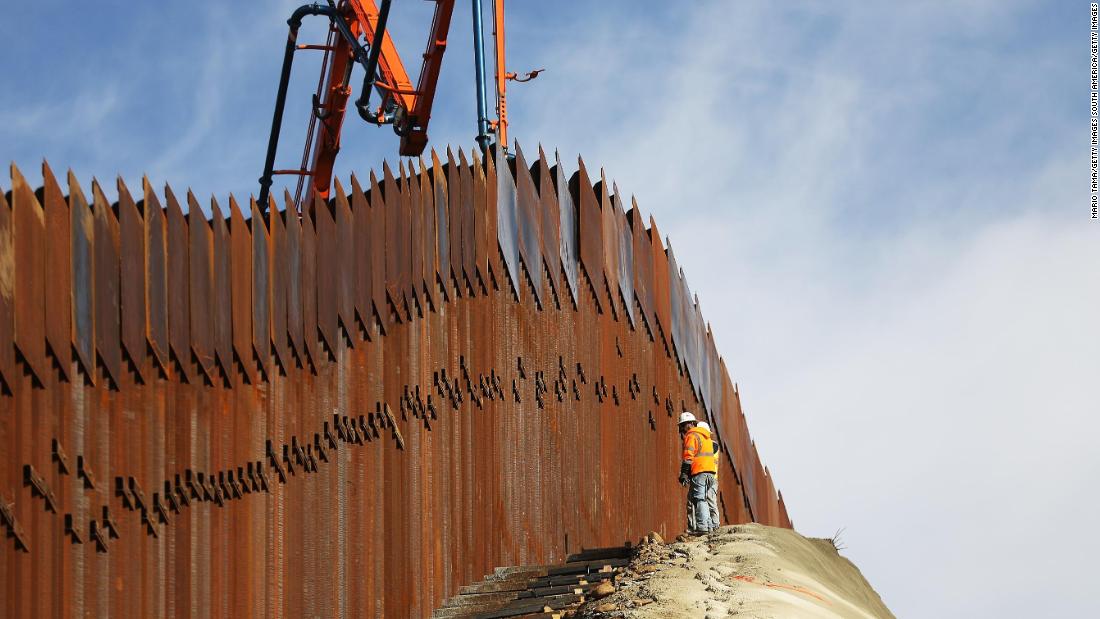
About the wall, for instance.
Consider this from Trump during the campaign in 2015, explaining the rationale for his favorite edifice:
"What I do best in life, I build. ... I want it to be so beautiful because maybe someday they'll call it 'The Trump Wall.' Maybe. If they call this 'The Trump Wall,' it has to be beautiful."
There you go. The wall, for the President, is a monument. To himself. A visible legacy of his achievement; an example of what he considers himself best at: building and branding. It's not like tax reform or trade policy. It's actually concrete (or slats) and there for all the world to see as a Trump achievement. Even when he leaves the Oval Office. And way beyond.
If he could put his name on it in gold filigree, he would. But maybe calling it The Trump Wall is good enough.
This is not new for Donald Trump. His life has always been about the theatrical product. "It's like the curtains opening at an opera," says biographer Michael D'Antonio. "It's like a piece of scenery for his show."
Indeed. And as Trump produces this scene, his concern for the hundreds of thousands of furloughed government workers is lost, taking a back seat to his star, the wall. Kind of like Atlantic City 30 years ago when he was building other monuments to himself, inconspicuously named The Taj Mahal, for instance. The gilded splendor marketed as Trump mattered the most; paying the contractors what they were owed took a back seat. Always.
And so now he has boxed himself in. He truly believes the artifice he has constructed about both his great ability to build and his prowess at negotiating for permission to build. He did it in real estate, he tells us, and he was brilliant, or so he claims.
But now his monument is caught between his own grand vision and Democratic priorities for immigration reform, not to mention his party's far right. Trump probably longs for the good old days, when he could -- and would -- say just about anything in a room to test a real estate deal, especially since his company was not publicly held. Exaggeration was king, a perfect fit for Trump. Alan Pomerantz, who represented a group of Trump's creditors in the early 1990s, calls it "puffing." Trump probably perfected the art of the hype.
Problem is, negotiating with Congress isn't like doing a real estate deal. In real estate, you can walk out of a room, as Trump did many times. But when he tried it with Chuck and Nancy it didn't work. In fact, it backfired.
So now, Trump is left with the ideal of a shrine to himself, but no deal. Concrete or slats, who cares? Furloughed workers in distress, never mind.
So long as the monument can be built, standing for future generations to be reminded of the President of the United States, the Master Builder.
No comments:
Post a Comment